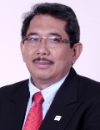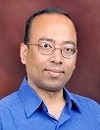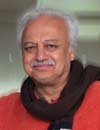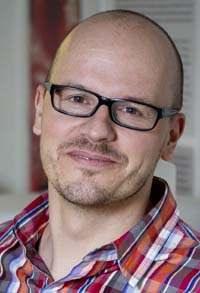Iekhsan OthmanProfessor, Monash University |
Debnath PalProfessor, Indian Institute of Science Dr Debnath Pal currently works at the Department of Computational and Data Sciences, Indian Institute of Science. We do research in areas spanning Genomics, Proteomics, Metabolomics, Structural Biology, Drug Discovery, Algorithms & Methods with a focus to address biological problems through Computational Biology and Bioinformatics. Our methods are techniques include use of data from NGS, Mass Spectrometry, X-ray Crystallography, NMR and other biophysical techniques. We work on biological problems that attempt to understand biological function at various scales through development and integration of new methods and techniques. Our recent projects include "Inference of Protein Function from Molecular Dynamics", "Genome Secondary Analysis", "Hemoglobin Structure & Function" and so on. |
Surinder SahotaReader, University of Southampton Dr Sahota is Reader in Immunogenetics in the Cancer Sciences Unit, Faculty of Medicine, University of Southampton one of the Russell Group of elite universities in the UK, and placed in the Top 10 Universities in the recent UK REF2014 exercise. He graduated in Biochemistry and obtained his PhD in Biochemistry from the University of London UK followed by an appointment as Lecturer and Post-doctoral Scholar in Microbial Genetics at the University of California Los Angeles, USA. Subsequently, Dr Sahota switched interest focus to cancer and undertook research at the University of London and then at University of Southampton, obtaining his current Faculty position. Early research work in Cancer Sciences, Southampton focused on developing immunogenetics to profile pathogenesis and progression in B-lymphocyte malignancy, with a special focus on multiple myeloma and Waldenstrom’s macroglobulinemia. More recent work has utilised genome wide whole exome sequencing to examine mutations to define B-cell tumour origins and behaviour, seeking to link genomic mutations with functional outcomes. The group is also interested in defining tumour-associated antigens, and in targeted immunotherapy using DNA vaccines. Dr. Sahota is an invited speaker to national and international conferences, and peer-reviews for a number of leading journals and research grant awarding bodies in Europe and USA. Dr. Sahota is also an established member of the European Myeloma Network, and jointly co-ordinated successful funding bids to establish multi-centre research networks under the EU FP6/7 Programmes. |
Juergen SchaeferMass Spectrometry Lab Head, Sanofi Dr. Juergen Schaefer is currently Laboratory Head for Mass Spectrometry in Analytical Sciences, Lead Generation to Candidate Realization of Sanofi in Frankfurt. He received his Ph.D. in Chemistry from Prof. Michael Karas at Johann Wolfgang Goethe University in Frankfurt (MALDI-TOF-MS) and has 20 years of experience in Mass Spectrometry of Biopolymers. Since 2000 he worked in Protein Biomarker Discovery using Proteomics Mass spectrometry at Proteome Sciences. He developed Quantitative MS-based Techniques (e.g. TMT, Tandem Mass Tags) for Peptide and Protein Profiling. After joining Sanofi in 2009, he is mainly responsible for Characterization of Peptides and Proteins with Mass Spectrometric Tools in combination with Separation Methods for Analytical Sciences as well as for Characterization of Monoclonal Antibodies for Bioanalytics & Formulation in Frankfurt. |
Jochen SchwenkDirector- Plasma Profiling Facility, KTH Royal Institute of Technology Dr Jochen M. Schwenk is Director of Plasma Profiling facility at Science for Life Laboratory, School of Biotechnology, KTH. He is also Principal investigator and head of Plasma Profiling Module within Human Protein Atlas project (2008 - present) at Dept. of Proteomics, School of Biotechnology, KTH.He studied Biochemistry at the University of Tuebingen, Germany, receiving his PhD in 2005 for his work with Dr. Thomas Joos (NMI). He then joined Prof. Mathias Uhlén and the Human Protein Atlas for his postdoctoral work, funded by the Wallenberg Foundation and F.Hoffmann-La Roche. In 2009, Dr. Schwenk was nominated as “KTH star” for the WCN symposium on Frontiers in The New Biology KTH. Dr Schwenk\\\'s group studies the human plasma proteome using affinity-based methods to enhance biomarker discoveries, validation and integration from basic research towards clinical use. Our long-term objective is to design translational assays for clinically useful plasma proteins, which contribute to establishing tools for precision medicine. |




